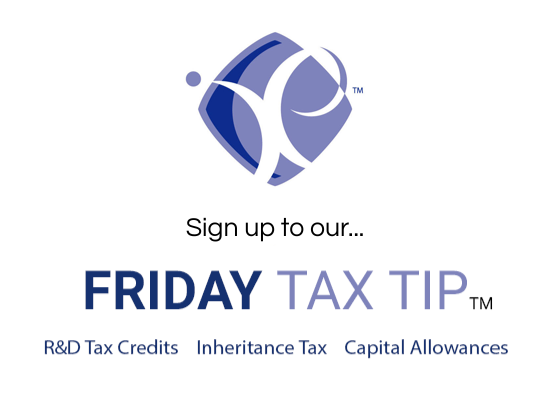If you’re running a limited company, you might be paying more tax than necessary without even realising it.
Whether you’re a sole director or managing a growing team, the same costly mistakes crop up time and again.
The good news is that most of these issues can be corrected quickly with the right advice.
Here’s how to stay tax efficient and in control of your finances.

(Read Time: Approx. 6 minutes)
Topics Discussed:
- Common tax mistakes limited company directors make and how to avoid them
- Practical steps to lower your personal and company tax liability
Drawing Money from Your Company the Right Way
A common error directors make is treating the company bank account like their own.
Without a proper structure, this leads to confusion, higher taxes, and even HMRC scrutiny.
The most effective approach is to pay yourself using a blend of salary and dividends.
A small salary ensures National Insurance contributions are maintained without triggering extra tax, while dividends can be drawn at lower tax rates.
This method keeps your director’s loan account in check and ensures your business income is withdrawn in a compliant and tax-efficient way.
Avoid informal drawings and speak to your accountant to confirm the right balance.
Make Use of Your Spouse’s Tax Allowance
If your spouse or civil partner is a stay-at-home parent and don’t work, their personal allowance of £12,570 may be going unused.
With some basic planning, your company could pay them a salary for helping with admin, bookkeeping, or any other role they can reasonably carry out.
You may also be able to claim the marriage allowance, allowing up to £1,260 of unused allowance to be transferred to you.
This can generate a household tax saving of up to £252 a year. It’s a simple adjustment that can make a meaningful difference.
Understand the Rules Around Director’s Loan Accounts
A Director’s Loan Account (DLA) records any money you take from or lend to your company that isn’t salary or dividends.
If you withdraw more than you’re entitled to and don’t repay it within nine months of your company’s year-end, a Section 455 tax charge of 33.75 percent applies to the outstanding amount.
This can be reclaimed once the loan is repaid, but there’s usually a long wait and no interest is paid by HMRC.
If the loan exceeds £10,000 at any point and you don’t pay interest at HMRC’s official rate, it’s treated as a benefit in kind.
This means you’ll face personal tax, and your company will owe Class 1A National Insurance.
If the company writes off the loan, it becomes taxable income for you through PAYE.
Poorly managed DLAs can quickly become expensive and may prompt further scrutiny from HMRC, so it’s vital to plan withdrawals carefully and keep accurate records.
Choose Your Company Car Carefully
Buying a car through the company can be tax-efficient, but only if the right type of vehicle is selected.
Many directors mistakenly purchase luxury petrol or diesel vehicles without understanding the personal tax cost involved.
These cars often come with high benefit-in-kind charges, especially for vehicles with high CO2 emissions.
In contrast, electric vehicles benefit from a very low benefit-in-kind rate (as low as 2 percent) and can also be written off against company profits through 100 percent capital allowances.
Always get advice before purchasing to avoid an unnecessary tax bill.
Consider Paying Life Insurance Through the Company
Most directors pay for life insurance personally, but this could be a missed opportunity.
A Relevant Life Policy is a type of life cover that your company can pay for, without it being treated as a taxable benefit.
The policy premiums are treated as a business expense, and the benefit is tax-free for the individual.
This setup avoids Income Tax and National Insurance, creating a significant saving compared to paying the premiums personally.
However, not all life policies qualify, so make sure the right one is in place.
Don’t Overlook Pension Contributions
Pension contributions are one of the most overlooked yet valuable tools for tax planning.
If your company makes contributions directly into your pension scheme, these are deductible for Corporation Tax purposes and do not incur Income Tax or National Insurance.
The annual limit is currently £60,000, and you may be able to carry forward unused allowances from previous years.
This allows you to extract value from your company while building your future wealth.
For many directors, this is one of the most effective ways to reduce tax.
Employ Your Children (If They Work for the Business)
If your children help in your business, you may be able to pay them a reasonable wage and use their personal allowance.
Tasks might include admin, marketing support, or even helping with website updates, depending on their age and ability.
Their wages must reflect the work they do, and you must document everything, including contracts and payment records.
By doing this properly, your business can claim a tax-deductible expense, and your children can earn tax-free income up to £12,570 per year.
Use the Trivial Benefits Allowance
The trivial benefits exemption allows directors to receive small perks from their company without triggering a tax charge.
You can receive up to six benefits per year, each worth no more than £50, giving a total of £300 annually.
These benefits cannot be cash or given in exchange for work.
Typical examples include gift vouchers, meals, or birthday treats.
When used correctly, this is a simple way to take something out of the business without any tax impact.
Claim Home Office Expenses
If you work from home, even occasionally, you’re entitled to claim expenses for the use of your home.
HMRC allows a flat rate of £6 per week, which requires no evidence.
If your costs are higher, you can calculate a reasonable proportion of household bills to claim a larger amount, although this method does require supporting calculations.
For directors who work from home regularly, this can be a worthwhile deduction that adds up across the year.
Don’t Rely Entirely on Your Accountant
Many directors assume their accountant is claiming every available allowance.
In reality, not all advisors are proactive, and some will only process what you tell them.
If your accountant hasn’t asked you detailed questions about your withdrawals, expenses, or family members involved in the business, you could be missing out.
If you’re not sure whether you’re making the most of available tax planning opportunities, it’s worth reviewing your situation.
You may be surprised at what can be improved.
Summary
If you’re a limited company director, you have access to a wide range of tax planning tools.
From optimising your salary and dividends, to paying for life cover and pensions through the company, these strategies can significantly reduce your tax bill when used correctly.
Speak to us at Tax Expert today to review your tax position and take advantage of every opportunity available.
Fill out our form here for any questions, email us at info@taxexpert.co.uk, or message us on our WhatsApp for out of office hours.
Kind regards,
Ilyas Patel

